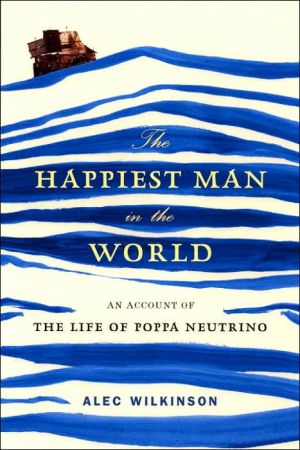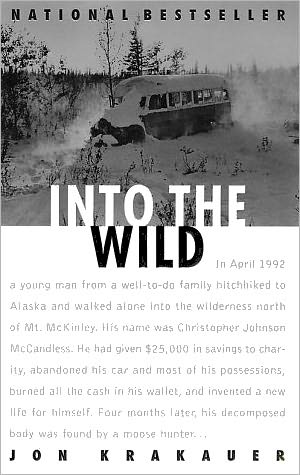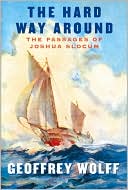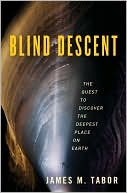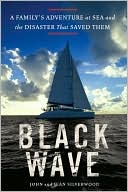The Happiest Man in the World: An Account of the Life of Poppa Neutrino
The Happiest Man in the World buoyantly describes seventy-four-year-old David Pearlman, a restless and migratory soul, a mariner, a musician, a member of the Explorers Club and a friend of the San Francisco Beats, a former preacher and sign painter, a polymath, a pauper, and a football strategist for the Red Mesa Redskins of the Navajo Nation. When Pearlman was fifty, he was bitten on the hand by a dog in Mexico and for two years got so sick that he thought he would die. When he recovered, he...
Search in google:
The Happiest Man in the World buoyantly describes seventy-four-year-old David Pearlman, a restless and migratory soul, a mariner, a musician, a member of the Explorers Club and a friend of the San Francisco Beats, a former preacher and sign painter, a polymath, a pauper, and a football strategist for the Red Mesa Redskins of the Navajo Nation. When Pearlman was fifty, he was bitten on the hand by a dog in Mexico and for two years got so sick that he thought he would die. When he recovered, he felt so different that he decided he needed a new name. He began calling himself Poppa Neutrino, after the itinerant particle that is so small it can hardly be detected. To Neutrino, the particle represents the elements of the hidden life that assert themselves discreetly.Inspired by Thor Heyerdahl and Kon-Tiki, Neutrino is the only man ever to build a raft from garbage he found on the streets of New York and sail it across the North Atlantic. The New York Daily News described the accomplishment as “the sail of the century.” National Geographic broadcast an account of the trip as part of its series on extreme adventures. And now he is on a quest to cross the Pacific on a raft. If he makes it, he plans to continue around the world. No one has ever sailed around the world on a raft. Meanwhile, he has invented the Neutrino Clock Offense, an unstoppable football play, which a former coach of the New York Jets describes as being as innovative as the forward pass.The philosophical underpinnings of Neutrino’s existence are what he calls Triads, a concept worked out after years of reading and reflection. He believes that each person, to be truly happy, must define his or her three deepest desires and pursue them remorselessly. Freedom, Joy, and Art are Neutrino’s three.The Happiest Man in the World is a lavish, exotic, funny, and deeply serious book about a man who has led a life of profound engagement and ceaseless adventure. The New York Times - Gary Kamiya Rainer Maria Rilke s poem Archaic Torso of Apollo ends with the famous line, You must change your life. Alec Wilkinson s remarkable book leaves the reader with the same feeling. His subject, a man named Poppa Neutrino, has lived his life completely outside the lines. Neutrino is a modern primitive, a nomad and permanent dropout who relentlessly rejects anything that smacks of the normal. His choices place a strange but indelible question mark next to ours.
\ Gary KamiyaRainer Maria Rilke’s poem “Archaic Torso of Apollo” ends with the famous line, “You must change your life.” Alec Wilkinson’s remarkable book leaves the reader with the same feeling. His subject, a man named Poppa Neutrino, has lived his life completely outside the lines. Neutrino is a modern primitive, a nomad and permanent dropout who relentlessly rejects anything that smacks of the normal. His choices place a strange but indelible question mark next to ours.\ — The New York Times\ \ \ \ \ Publishers WeeklyOver the last few years, Wilkinson (Mr. Apology and Other Essays) has been spending quite a bit of time in the company of "Poppa Neutrino," a homeless man who's performed as a street musician in New Orleans and New York and traveled across the Atlantic in a homemade raft. So "lavish and prodigal" is Neutrino's history that his barroom encounters with Kerouac and Ginsberg at the height of the beat era are dispensed with in a few sentences-after all, by that time, he'd already been crisscrossing the country for several years himself. In Wilkinson's company, Neutrino spends time in Arizona trying to persuade football coaches to use a passing play he's developed that could conceivably revolutionize the offensive game, winding up on a Navajo reservation where he volunteers with a high school team. Then it's off to Mexico, where he puts the finishing touches on one more raft, which he hopes to sail down the coast to South America and then across the Pacific. For the most part, Wilkinson simply observes, acting as our conduit to this abrasively compelling personality. But that's like saying Boswell was simply observing Johnson: the portrait of Neutrino that emerges from these encounters and anecdotes is a truly captivating story. (Mar. 13) Copyright 2006 Reed Business Information.\ \ \ Library JournalFor many, the first question about this book will be, "Who is Poppa Neutrino?" He was born David Pearlman and took the name Neutrino after being bitten by a dog in the 1980s and almost dying. A neutrino is an itinerant particle so small it cannot be detected. (Pearlman thought, incorrectly, that its existence was theoretical.) The second question readers will have is, "What has he done to merit a book?" The answer depends on how one defines success. Neutrino has been, among other things, a beatnik, a street musician, a football fan, and a raft maker who has attempted to sail his homemade vessel across the Pacific. This book is an expansion of Wilkinson's (A Violent Act) 2005 article about Neutrino, published in The New Yorker. Wilkinson spent several years traveling with Neutrino, his followers, and his three wives. Readers will find the book-and Neutrino-to be sometimes humorous but will come to the end wondering what the point of it all was. Not an essential purchase.-Ron Ratliff, Manhattan Christian Coll. Lib., KS Communications Copyright 2007 Reed Business Information.\ \ \ \ \ Kirkus ReviewsThe life and times of itinerant wanderer and vagabond extraordinaire David Pearlman, better known in some circles as Poppa Neutrino. Longtime New Yorker contributor Wilkinson (Mr. Apology, 2003, etc.) writes about yet another creative eccentric. Early chapters are devoted to stories from Neutrino's younger days, during which he engaged in fist fights in seedy bars; led a band of followers dubbed the "Salvation Navy" across the country while performing odd jobs to survive; and sailed across the Atlantic on a homemade raft in the company of his wife and two friends. The narrative is interspersed with the author's interactions with Neutrino as well as their phone conversations. Among the highlights of their times together are visits to college and high-school football coaches to whom Neutrino attempts to pitch an idea that he believes will revolutionize football (it involves allowing quarterbacks and receivers to communicate during the action), as well as his attempt to build a new raft for a voyage across the Pacific. As the author points out, Neutrino is not necessarily the sort of man to draw the envy or admiration of others; much of his life has been spent struggling to survive generally self-imposed poverty. He is, however, an adaptable and intriguingly free spirit, determined to liberate himself from the constraints of the material world. Wilkinson sometimes spends too much time pontificating on the significance of his subject's actions, but he makes up for it with his deft handling of dialogue and his talent for pacing. A disarmingly earnest portrait of an enigmatic figure.\ \
